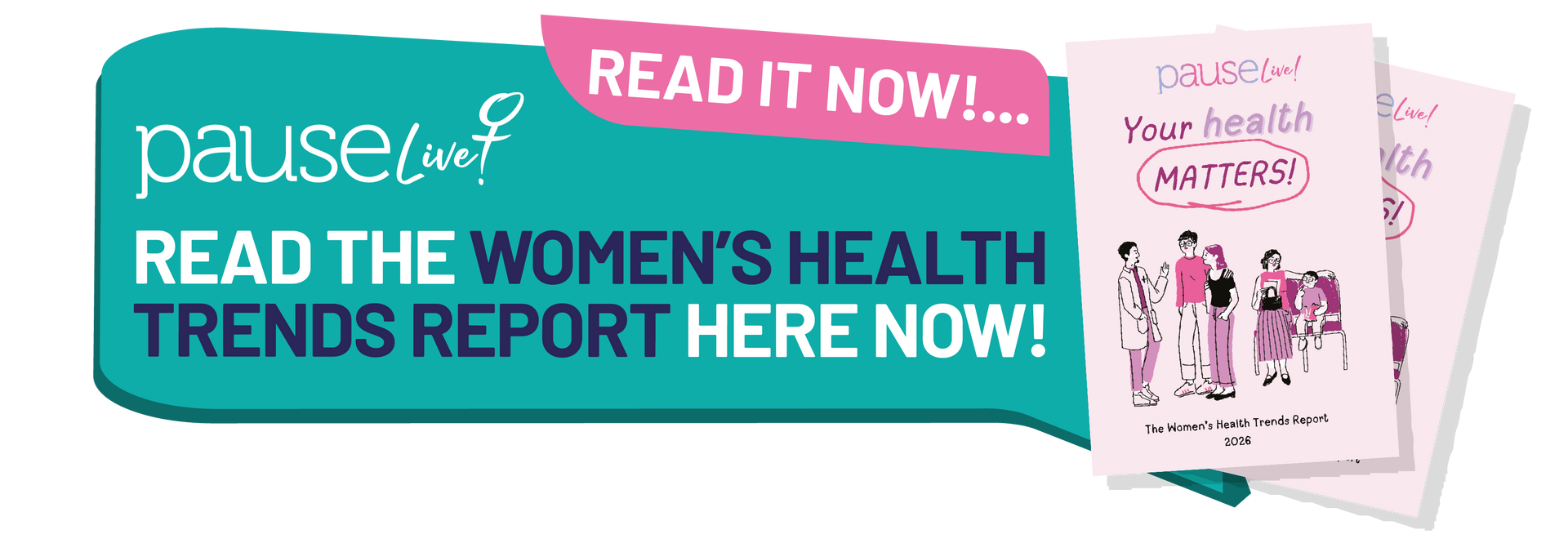MANAGING MENOPAUSE SYMPTOMS
Low Mood During Menopause
Low mood—including sadness, irritability, anxiety, and emotional instability—is a prevalent experience during perimenopause and menopause. These mood changes stem from fluctuating and falling oestrogen and progesterone levels, which affect neurotransmitters like serotonin and increase stress hormone (cortisol) levels, all of which may impair emotional regulation. Sleep disruption, hot flushes, physical symptoms, and personal life stressors further contribute to the decline in mood.
Common Signs
People experiencing menopause-related low mood may notice:
- Persistent sadness or emptiness
- Fatigue or loss of energy
- Irritability or anxiousness
- Reduced interest or pleasure in previous hobbies
- Brain fog or poor concentration
- Disturbed sleep or insomnia
- Feelings of low self-worth or restlessness
- Appetite changes with weight fluctuation
Why It Happens
- Hormonal transitions: Declining oestrogen reduces serotonin regulation, while falling progesterone can heighten irritability; elevated cortisol from chronic stress exacerbates mood dips
- Sleep disturbance: Night sweats and insomnia reduce restorative rest, worsening emotional resilience.
- Cognitive burden & brain fog: Memory lapses and poor concentration undermine confidence and emotional stability.
- Life stressors: Midlife transitions—such as caring responsibilities, work pressure, or ageing—intersect with hormonal shifts to challenge mood and resilience.
Strategies to Support Mood
1. Psychological & Therapeutic Approaches
- Cognitive Behavioural Therapy (CBT) and mindfulness-based therapies have demonstrated strong effectiveness in improving low mood, anxiety, sleep, and concentration during menopause. These approaches empower women with practical coping skills.
- Joining group therapy or peer-based sessions can reduce isolation and build resilience.
2. Hormone Replacement Therapy (HRT)
- HRT is explicitly recommended by NICE for alleviating low mood directly linked to menopausal hormonal changes, provided there are no contraindications.
- HRT can also benefit sleep, hot flushes, and overall well-being, especially when tailored and monitored appropriately.
- NICE advises against routine use of antidepressants unless clinical depression is diagnosed.
3. Lifestyle & Dietary Measures
- Regular exercise (walking, yoga, aqua classes) aids mood by enhancing neurotransmitter release, boosting energy, and improving sleep.
- Plant-rich diets—notably consuming up to 30 different plant foods per week—have been linked with up to 44% reduction in menopausal mood symptoms, thanks to their anti-inflammatory and microbiome-supportive properties.
- Reduce alcohol, caffeine, and unhealthy fats, which can disrupt mood stability and sleep.
- Good sleep hygiene: maintain routine, limit screens before bed, keep your bedroom cool and dark.
- Stress reduction via relaxation techniques like meditation, journaling or tai chi can bring emotional relief
- Social connection and tracking symptoms can aid self-awareness and emotional support.
When to Seek Help
Consult your GP or menopause specialist if:
- Mood symptoms persist beyond a few weeks or clearly interfere with daily functioning
- You're experiencing severe sadness, anxiety, or suicidal thoughts—particularly if former treatments have failed
- Previous mood disorders resurface or intensify during menopause
Your healthcare provider may arrange blood tests (e.g. thyroid function, vitamin B₁₂, vitamin D), consider a referral to mental health services or prescribe HRT/CBT accordingly
Bottom line:
Low mood during menopause is real, biologically driven, and distinct from clinical depression. It’s most effectively managed with a combination of interventions: HRT (when appropriate), psychological therapy (CBT), lifestyle and diet changes, improved sleep, and emotional support. With personalised care, mood often significantly improves, restoring emotional and mental vitality.


